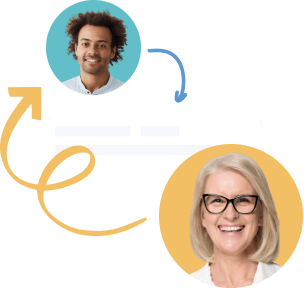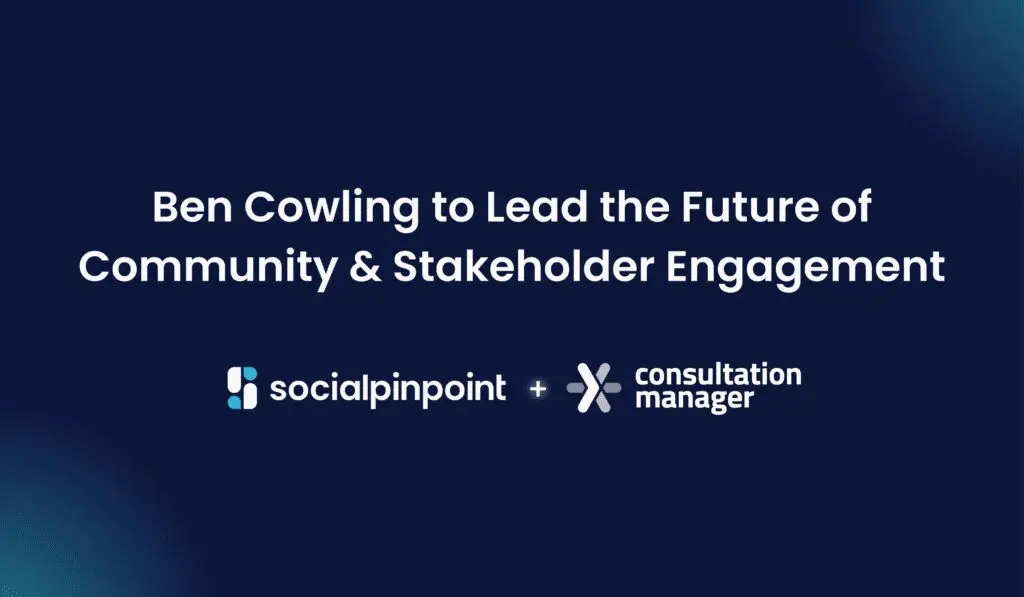At times, people with public-sector missions fear that opposition could slow down their progress. The fact is that resistance will exist either way. You can face it at the eleventh hour or embrace it early on. Discover how to work with, rather than against people with a “not in my backyard” mentality.
There is one question that our community engagement experts get asked frequently: “Should I engage with my community even when I’m not required to?”
It’s never been easier to air an opinion publicly and information (and misinformation alike) can spread quickly. What if going above and beyond opens up a can of worms? You have already done all of your homework and come up with the right solution anyway, right?
At some point, you will have to share your initiative with the public. So, the last thing you want is to have implementation blocked after you have already invested all of your resources into your plan. Discover how to lean into resistance and shape the narrative with your community early on instead.
Do You Really Understand the Problem?
We can’t come up with solutions for our communities without first understanding the true problem at hand. Eric Thomas expressed this concept perfectly in his TEDxDetroit Talk, How Storytelling Can Give a Community Back its Voice.
“We shouldn’t be bringing solutions to problems that we don’t understand. It’s not our job to bring savages fire. It’s our job to find out how locals create magic. It’s our job to find out how do you do so much with so little.” – Eric Thomas
When we allow people to speak for their communities, we’re not giving them a platform. They are giving us a gift. They are allowing us to peer into a world that we can not possibly understand. It’s easy for us to design solutions based on the reality that we think should exist.
So it’s essential to rethink the language that we use when speaking with the community. Are you bringing your own tint to the conversation? Or have you asked the community to tell you about their lived experiences with an open mind? When you seek to understand that you can find answers to problems that you didn’t know existed, you let community voices shine.
Do You Want Conformity Or Consensus?
Conformity is the process in which people change their beliefs, attitudes, actions, or perceptions to more closely match those held by groups to which they belong or want to belong. Is that what you’re really trying to achieve?
Or are you really trying to build consensus? A cooperative process in which all group members develop and agree to support a decision in the best interest of the whole.
People all have different life experiences, so it’s important to understand that your initiative will impact others in some way. This also means that experiencing opposition is natural. (Many people would also argue that it’s healthy.)
Those who oppose your initiative are not irrational and they are probably the people that you need to listen to the most. They have a strong perspective that could greatly influence your success. Rather than ignoring or undermining them, you need to give them enough information to understand the wider impacts of the initiative.
Show them your north star and make sure it’s clear that you have done your research. Explain the science, the technology, and the direction in a way that they understand. You don’t have to force them to be happy about your initiative, but your project will run far more smoothly if you can still gain their consent.
Are You Asking for Opinions or Stories?
Stories are transformative. They put us into the shoes of those that are not quite like us and smart policymakers use them to unlock new ideas all the time.
Surveys are an incredible tool and the results are measurable. But, they can push your community to choose an opinion before they understand the big picture if they are used in the wrong context. Being asked to put a stance down “on paper” too soon puts people into defense mode and it’s hard to uncover the experiences and ideas that are behind each opinion.
Surveys and debates that are used too early in the engagement process can constrict the community into narrowly defined answers. However, stories are personal. They evoke respect from others and capture what we care about the most. You can learn a great deal more about the community’s needs by inviting storytelling in the early phases of your project.
If someone is forced to say, “I oppose this policy” and then asked to justify “why” it’s likely they will be defensive. But if they are asked for their story, they will explain how they relate to the issue and are far more likely to reveal their motivations, helping you find a solution that considers all views. If people have also played a part in writing the narrative, then they are far more likely to identify with the collective story as a whole.
Big Solutions to Big Problems Will Step on Someone’s Toes
We recently spoke to Will Hampton on this topic as he led the City of Round Rock’s communications efforts and helped the city win over 100 excellence awards for creativity and effective citizen engagement during his 23-year tenure.
Here is his pragmatic perspective.
“Governments exist to solve big problems. Big problems typically require big solutions that will inevitably cause someone some pain. Gathering the community to inform them of the problem, explaining the seriousness of that problem, demonstrating the decision-making process for the proposed solution is legitimate, and showing that decision-makers are listening is crucial. Many, even most people will oppose you at first. But through a patient, well-planned citizen engagement process, you can move people from “hell no!” to “ugh, fine.” You do this in part by asking what will happen if the problem isn’t addressed as well as by providing space for people to share their concerns. Bonus points if you can (and do) adjust your plan to mitigate the pain points without compromising the solution.”












